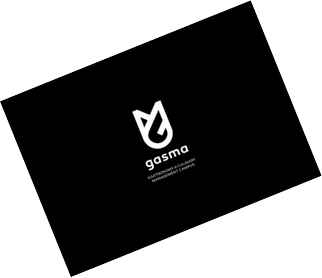Take a professional leap into modern gastronomy with this master’s degree where you will explore the synergies of gastronomy and the sweet world. Knowing all the areas of gastronomy, including pastry and the savory world, will enable you to function in any area of a restaurant. In our gastronomy university you will learn about raw materials, treatments, techniques, pastries, trends in cooking and sweet world and cuisines of the world.
Gastronomy does not stop evolving with new techniques and trends. Continuous training is therefore the best tool to excel as a professional. With this objective, we have designed a program in which more than 30 professionals from the gastronomic world participate who will share their knowledge in eminently practical sessions. The goal is to help you become a versatile professional capable of meeting the needs of the industry.
![]() April 2024
April 2024
![]() 3 months at Gasma
3 months at Gasma
![]() On-site training
On-site training
![]() Spanish + Real time English translation. Class material available in English + Free Spanish Classes
Spanish + Real time English translation. Class material available in English + Free Spanish Classes
![]() Internship: 3 months
Internship: 3 months
![]() 7.500€
7.500€
![]() Castellón, Spain, Europe
Castellón, Spain, Europe
![]() 60 ECTS (credit system)
60 ECTS (credit system)
This master’s degree in gastronomy and the sweet cuisine is aimed at profiles passionate about gastronomy. Chefs or confectioners with concerns who are looking for intensive training to finish their studies or complement their professional experience. This program is aimed at non-conformists who are in full swing and want to face new challenges and work methods in the kitchen.
I want to be a modern chef
For people who want to be up to date with new technologies and techniques in the gastronomic world.
I want to change my professional life
For people who want to expand their comfort zone to achieve their personal and professional goals by becoming a chef.
I want to train with the best chefs in Europe
For people with a broad vision of the world who want to live a complete international training experience according to their expectations.
I want to cook with knowledge
For people who want to know the background of the recipes and have the scientific knowledge of each preparation.
Request more information
https://youtu.be/jtVUoNECJmk
I want to work in any kitchen in the world
For people who want to have a holistic and international vision that allows them to face challenges of any kitchen in the world.
I want to be a creative chef
For people who want to explore new culinary techniques and take their cooking to new levels of experimentation and originality.
I want to be a chef 360
For professionals who want to have a global and transversal vision of cooking and the culinary business.
The best gastronomic training center we have ever seen. There’s nothing like Gasma
Torres Brothers
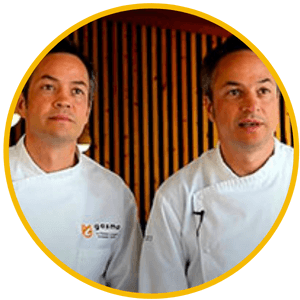
A unique experience. I have had the best pastry teachers.
Ana Boquin. Student of the Master’s Degree in Contemporary Pastry
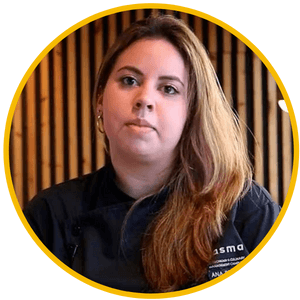
Gasma teaches how to make haute cuisine profitable.
Jordi Rosell. Management and management teacher.

The degree in Gastronomy and Culinary Management has helped me to approach the world of oenology from another point of view.
Sonia Valero. GASMA alumni and winemaker at Baron d’Alba

Gasma transmits that passion for the world of wine, the emotional part that goes beyond knowledge. And there is nothing more beautiful than traveling through a bottle when we open it.
Eva Pizarro. Teacher at Gasma and coordinator of the sommelier area.
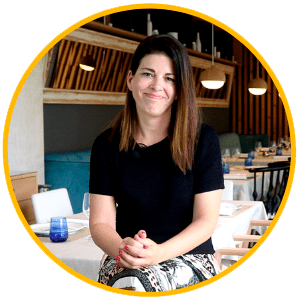
Being able to work side by side with great chefs and work under them gives you the opportunity to ask questions and see them in action, which has made us grow a lot as professionals.
Ángelo Rivera. Alumni of the Master in Avant-Garde Pastry and Desserts in Restaurants
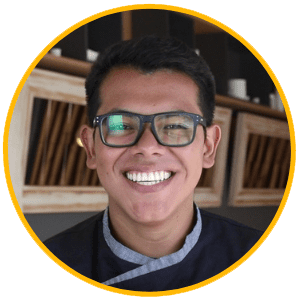
Anterior
Siguiente
Rate this Master’s
[yasr_visitor_votes]

This master’s degree encourages a change of vision in the student, who will find new ways of understanding modern gastronomy.
Through a deep knowledge of Mediterranean traditions, meeting producers, understanding raw materials and practicing ancestral and avant-garde culinary techniques, the student will achieve a wide range of skills in gastronomic trends.
You will recognize different haute cuisine business models and you will learn about different methodologies, which will allow you to develop more advanced creativity.
The main objective is for the professional to take a tour of all the gastronomic areas within a restaurant.
At Gasma, we use a different methodology in which the student is the main focus. We focus on knowing the abilities of each student and enhancing them. To achieve this, we link students with professionals in the field of gastronomy so that they can learn more about their philosophy and vision. We evaluate the progress of each student through different forms of evaluation and we provide them with continuous feedback to further personalize their projects.
Welcome to a totally practical approach based on learning by doing where students have the opportunity to work with the raw material and taste all the preparations made in class. At the end of the program, students will have to carry out a master’s degree project in which they will develop a group tasting menu based on a creative common thread. This project encourages teamwork and knowledge of other cultures to achieve an authentic concept of restoration.
Knowing the physical, chemical and sensory composition of the product is essential to acquire technical cooking skills. Students will learn how food molecules interact and how to apply this understanding to their kitchen work methodology.
Module sessions:
Raw materials and their application in cooking
In this block, various groups of raw materials will be classified and studied, including their production or cultivation techniques and their culinary manipulation. Students will learn to identify the organoleptic characteristics of each product and its corresponding gastronomic application.
Module sessions:
It is essential that contemporary cooks know the traditional and ancestral culinary techniques that are currently gastronomic trends. Within the context of Mediterranean cuisine, for example, we will see the importance of the varieties of olive oil and the tradition of Mediterranean rice dishes.
Module sessions:
In this module, we will explore the latest tools and machinery available on the market to apply in haute cuisine. In addition, we will use technological ingredients used in fine dining to modify the textures of food and achieve innovative and surprising results.
Module sessions:
This module will explore how various cultural influences have affected the European food scene, and how chefs have adapted their culture and experience in different countries to suit the local palate, using region-specific ingredients and culinary techniques.
Module sessions:
In this module, students will explore various gastronomic business models in Spain and discover products with designation of origin that make the experiences unique. In this module, students will explore various gastronomic business models in Spain and discover products with designation of origin that make the experiences unique.
Module sessions:
This module begins by identifying the most common utensils in grilled cooking. We then compare different types of wood and smoking techniques to understand fire behavior. We explore different cooking methods and examine the application of coals in cooking seafood and maturing meat on grills. We also explore how restaurant pastry can use fire techniques.
Module sessions:
Pastry techniques and formulation
In this module, the bases of creating desserts will be explored, the particularities of preparation in a workshop and a restaurant will be distinguished, and different Pastry chefs with various work methodologies will be known. The principles of a restaurant dessert and the sophistication of a showcase dessert will be addressed. All this with the aim of expanding knowledge on the subject.
Module sessions:
The concepts in this block are covered more extensively in our postgraduate course in pastry and confectionery.
You will learn about the characteristics of the different flours available on the market and the optimal way to use them. Yeast fermentations in the dough will also be studied, as well as puff pastry techniques and the preparation of French pastries, with the aim of understanding the art of croissants and their diversity of shapes.
Module sessions:
We will explore the origin of cocoa, identifying its qualities through a tasting in a “bean to bar” session. We will learn about the importance of roasting and how to formulate chocolate recipes with different percentages of cocoa. In addition, we will learn how to temper chocolate to create delicious bonbons and pieces of chocolate.
Module sessions:
The Master’s thesis will allow you to put into practice all the knowledge acquired by presenting a personal gastronomic proposal, adapted to current market trends. This project is an exercise of integration of all the contents received.
Improve your training in restaurants and gastronomic businesses of national and international prestige, and increase your job opportunities. Learn from the best professionals and work as a team at the highest level.
Do your internships in restaurants featured in the Michelin, Repsol and 50 Best guides, and live the experience of working as part of a staff of chefs or pastry chefs in a high-level restaurant.
Learn the working methods and facilities that convey the culinary concept of the restaurant.
Cook alongside world-renowned chefs to improve your resume and immerse yourself in global haute cuisine.
Study load: 60 ECTS credits
School period: April 5, 2024 – June 30, 2024
Curricular internship period: July 1, 2024 – August 31, 2024
Calendar: The academic calendar will be available soon.
The structure of professors and guests gives you a complete vision of the gastronomy of the 21st century. Welcome to the only master’s degree with more than 40 specialists related to gastronomy, pastry and culinary management. Expand your knowledge and manage to develop a much more complete creativity to face your new professional challenges.
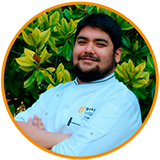
Luis is graduated in International Gastronomy in Chile. After embarking on a trip through Peru to learn about its culture and gastronomy, he completed the Diploma in Peruvian Cuisine at Le Cordon Bleu and returned to his country to carry out gastronomic projects, creating links with producers from indigenous peoples of the Andes. He traveled to Europe to train in the Basque Country and later in Gasma, where he studied the Master in Gastronomy and the Sweet Cuisine. Some time later he returned to Gasma to join the teaching team coordinating the programs for professionals, a task he has been carrying out for 6 years.
Mamen Lahuerta – Nutricionist
Yelel Cañas – Wild World Specialist Chef
Miguel Carretero – Chef expert in game animals
Alberto Ferruz – Chef 2 ** specialist in Mediterranean cuisine
Carlos Monsonís – Valencian chef expert in rice dishes
Jordi Guillem – Chef Consultant specialist in new technologies
Ferran Lleixa – Pastry chef specialist in sourdoughs
Luis Silva – Chef
Juan Carlos Perret -Chef expert in Peruvian cuisine
Sergi Palacín – Chef expert in Indian cuisine
Alessandro Maino – Chef expert in Italian cuisine
María Fernanda Hernández – Chef expert in Mexican cuisine
Carlos Overa – Chef expert in Japanese cuisine
Albert Boronat – Chef expert in French cuisine
Rafa Soler – Chef 1* specialist in seafood cuisine
Vicent Guimerà – Chef 1* specialist in rural cuisine
Emmanuel Atalaya – Chef 1* specialist in Mediterranean cuisine
Eva Pizarro – Sommelier 1*
Paco Boigues – Chef specialist in smoked elaborations
Cristina García – Pastry chef specialist in smoked desserts
Borja Basea – Chef specialist in grill kitchen
Juan Ángel Rodríguez – Pastry chef specialized in bean to bar
Marc Balaguer – Pastry chef specialized in chocolate
Toni Vera – Pastry chef specialized in puff pastry
Jose María Gil – Pastry chef specialized in ice cream
Samantha Vargas – Pastry chef specialized in restaurant desserts
Matías Farfan – Pastry chef specialized in restaurant desserts
Adrián Morcillo – Pastry chef specialized in individual pastry
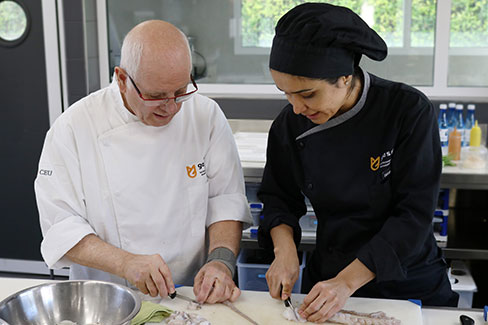
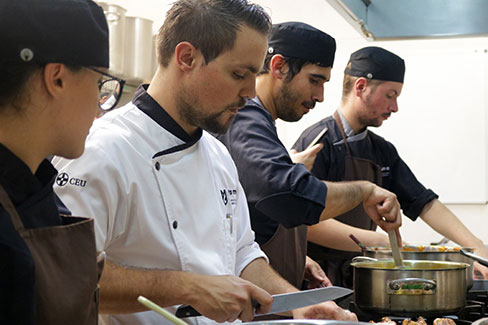
+
0
Internship agreements
+
0
Trained students
+
0
m2 Facilities
+
0
Profesionales Culinary Team
Request more information
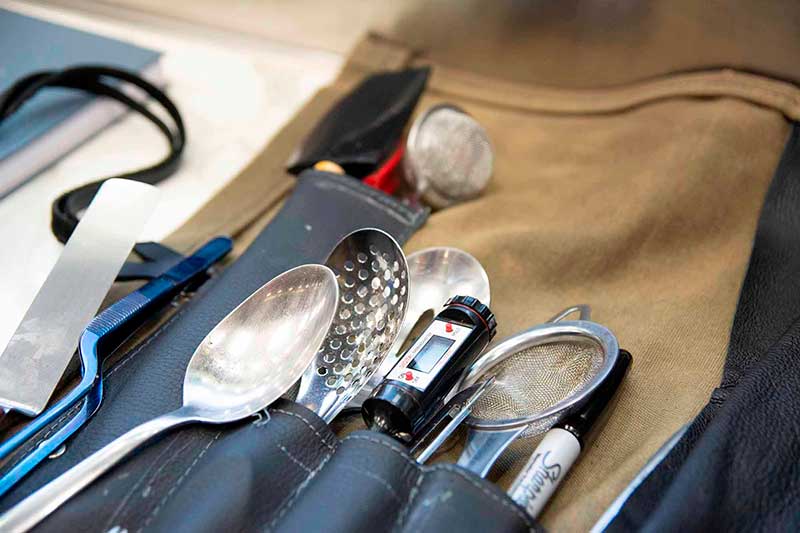
In the following table you can check the prices of the currently open call and the next available calls.
April 2024
Reservation
4,120 € *48 hours after confirming admission
First installment
3,380 € *30 days after the start of the master’s degree
TOTAL
7.500 €
International Fee
650€ (optional) for international students
The deadline for applications will remain open until the training is fully booked (limited places).
Admission and enrollment process
To apply for admission to the degree, the process indicated in the following chart must be followed.

1. APPLICATION FOR ADMISSION
If you are already know which program you want to study with us, enrolling is very easy: you must fill out the admission form that you find on this page.
You will receive an email confirming receipt of your application and we will contact you via email/call/whatsapp to proceed to the next phase of the process: the interview with the Admissions Committee.

2. INTERVIEW
Within 24 hours of receiving your application, you will be scheduled for a personal interview* with a member of the Gasma faculty or admissions team.
The purpose of the interview is to get to know the candidates, and to assess their knowledge of the industry and their aptitude for the program.
In this interview, we will provide you with all the documents you must provide to complete your application.

3. EVALUATION
After the personal interview the Admissions Committee will evaluate your application.
Once your application has been evaluated, we will inform you of the result.

4. RESERVATION
If you have been accepted… Congratulations! The admission process has been completed.
In order to secure your place, it is necessary to formalize the payment of the reservation.
Once the reservation has been paid, we will review with you again the necessary documentation for the management of your registration. Remember that, at this point, you should have sent us the following information: ID/Passport, Curriculum or Motivation Letter and Required academic documentation (if necessary).
* If you are unable to attend in person, the interview can also be conducted via Skype.
The world of gastronomy has a markedly interdisciplinary character. There is a wide variety of activities linked to the gastronomic and culinary sector, developing different professional profiles. Among others:
You will have achieved a comprehensive vision of gastronomy in all its areas.
You will have a deep knowledge of the product, its characteristics and culinary applications.
You will be able to innovate, create and achieve your professional goals.
You will have learned to move in a professional environment and working as a team.
You will have the necessary tools to start your own culinary business profitably.
Gasma is located in Castellón de la Plana (Valencian Community), Spain. The nearest airport is Valencia international airport (70 km away). Our city is located 2 hours by train from Barcelona and a little less than 3 hours from the capital of Spain, Madrid.
Gasma – Gastronomic Campus
Avenida Enrique Gimeno, 67
12006 Castellón, España, EU
Tel: +34 964 217 649
I am an international student, what do I have to do?
Our international student body continues to grow. We have students of more than 75 nationalities. European students do not need a visa to study in Spain. On the other hand, non-European students must obtain the corresponding visa that includes the authorization to stay in the country.
Students from certain countries are exempt from obtaining a visa as long as their stay in Spain does not exceed three months.
The visa will be requested and issued at the Spanish Consular Offices abroad. Once in Spain, Gasma offers non-EU students the optional International Fee service: with it, they can apply for the foreign student card through the Immigration Office or the corresponding police station within one month of their arrival.
Does GASMA also offer accommodation?
To make your stay easier and more comfortable during your studies, Gasma has agreements with various organizations to provide our students with nearby housing options. In advance of your arrival you will be able to choose and book your accommodation in an apartment, student residence, etc. Contact our admissions department to clarify any doubts regarding this issue.
All our masters and diplomas have a teaching staff composed of professionals with extensive experience and teaching skills.
The organizational structure of our programs is composed of an academic coordinator who is joined by other expert professors from the different training areas of each degree to complete the teaching panel.
Dependiendo del título, cada módulo de contenido cuenta con la participación de expertos conocedores del mismo: desde chefs, expertos en tecnología de los alimentos, nutricionistas, productores, expertos en negocios culinarios, gerentes, emprendedores, Pastry chefs, sumillers y expertos en sala…Todos ellos forman parte de nuestro Culinary Team y compartirán su visión sobre la gastronomía.
What is the international fee?
Do you need help with the arrangements prior to your arrival in Spain as an international student? Don’t worry, our International Admissions Office has put together this package of exclusive services that will smooth the way for you. You’ll see how easy it is to settle into your new home!
This service, completely optional for international students, includes help in finding accommodation, assistance in the management of residence documents, free pick-up and first night’s accommodation upon arrival in Spain, tourist, leisure and cultural information to make the most of your stay, a transportation card for your first trips around the city and the processing of a prepaid SIM card that will allow you to talk and surf the Internet from the first moment you arrive.
Does this master’s degree have an internship?
Yes. The Master in Cuisine and Sweet World includes a two-month internship at the end of the course. This is where the best part of your training begins. We offer you the possibility of choosing your internship among the hundreds of agreements that Gasma has with restaurants, bakeries and gastronomic businesses throughout Spain and internationally.
You will be able to do your internship in capitals such as Barcelona, Madrid, Santiago de Compostela, Lombardy (Italy), London, in countries such as Austria, Denmark, USA, Canada, etc. You should know that many students get jobs as a result of the internships they complete. It is a unique opportunity to create your own network of contacts in the sweet world.
What other programs can I study at Gasma?
If the content of this master’s degree does not quite fit with what you are looking for or with your profile, don’t worry. At Gasma you will find the best offer of gastronomy Master in Spain. If you are more interested in sweet cuisine, we recommend the master’s in pastry where you can train 100% in sweet cuisine If you have experience but do not have many months to dedicate to your training, take a look at our professional cooking courses, where you will find diplomas of up to 3 months of training and some even without internships. If you do not have experience in the world of gastronomy and want to train from scratch, then the Bachelor’s degree in gastronomy is the best option for you. Learn from the basics to the most advanced techniques in four years of comprehensive training.
Can’t find the answer to your questions?
Don’t worry, contact us and we will help you!
Request more information
Download the catalog of this master’s degree
